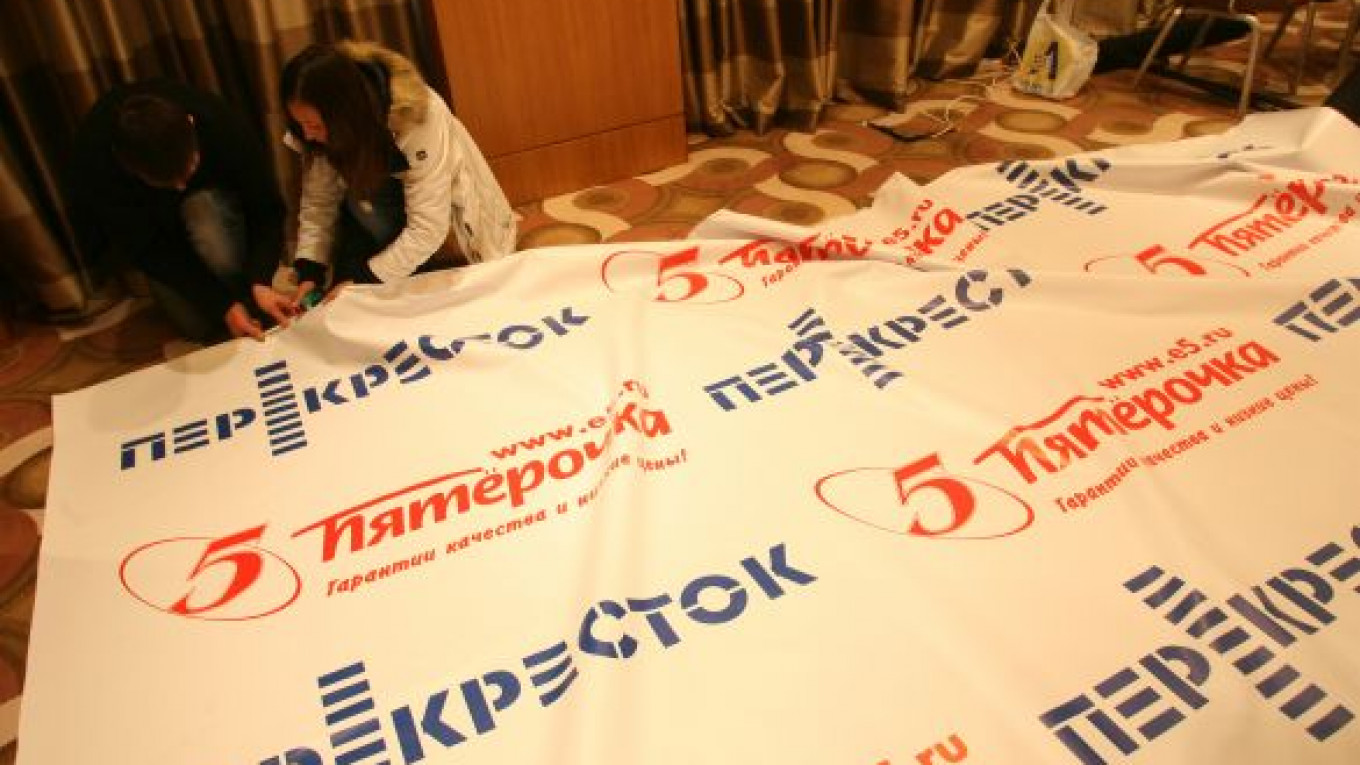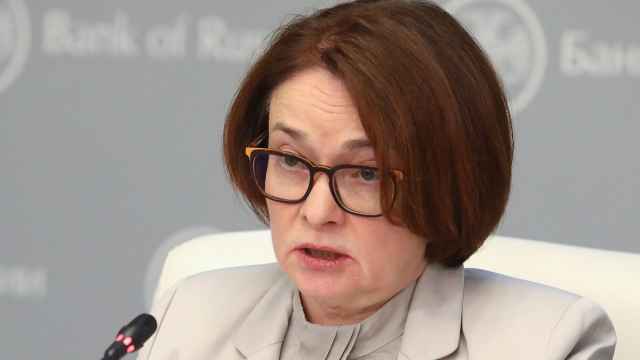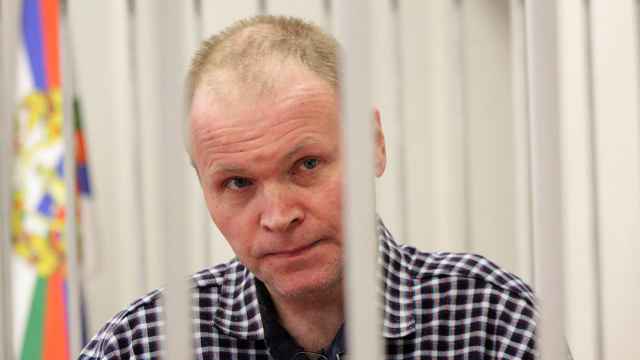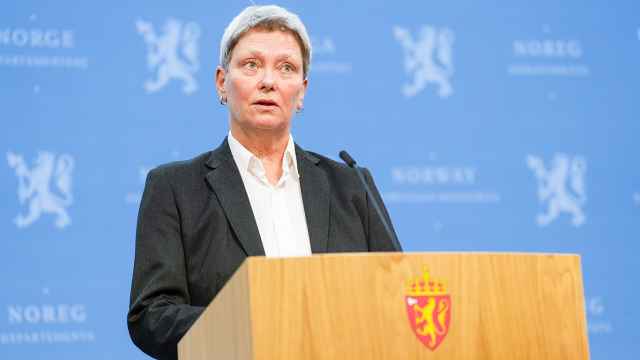X5 posted a worse-than-expected 81 percent slump in second-quarter net profit year on year, hurt by a weak ruble, but the grocer stuck by its 2010 guidance as margins began to recover.
Net profit fell to $24.9 million versus the $130.4 million seen in the year-ago period, the company said in a statement Thursday, falling short of the Reuters poll forecast of $37.2 million.
The bottom line was dented by a $72 million foreign exchange loss "due to significant ruble depreciation," X5 said.
The ruble weakened by nearly 6 percent versus the dollar during the second quarter, hurt by a retreat in oil prices, which are a key source of cash for the Russian economy.
This is in contrast to the first three months, when a stronger domestic currency had in fact boosted the retailer's results by making it cheaper to buy in foreign foods.
Net sales rose 25 percent in dollar terms to $2.64 billion, broadly in line with analysts' estimates.
"X5 reiterates 2010 sales growth and capex outlook, as provided on May 27, 2010," the statement said.
X5, Russia's top grocer by sales and 47.9 percent owned by billionaire Mikhail Fridman's empire Alfa Group, trimmed its 2010 sales growth outlook in May to "in the low-20 percent range," citing low food price inflation.
The company, which has more than 1,500 shops across Russia, was one of the first to cut prices to win increasingly cost-conscious customers as Russia slipped into its deepest recession in 15 years. It is now reaping some benefits from the economic recovery, and margins have started to improve.
The earnings before interest, taxation, depreciation and amortization margin rose to 8.3 percent in the second quarter from 7 percent in the first quarter, although it was still a bit lower than the year-ago level of 8.7 percent.
Rival retailer Magnit on Tuesday posted a slightly smaller-than-expected net profit in the second quarter.
A Message from The Moscow Times:
Dear readers,
We are facing unprecedented challenges. Russia's Prosecutor General's Office has designated The Moscow Times as an "undesirable" organization, criminalizing our work and putting our staff at risk of prosecution. This follows our earlier unjust labeling as a "foreign agent."
These actions are direct attempts to silence independent journalism in Russia. The authorities claim our work "discredits the decisions of the Russian leadership." We see things differently: we strive to provide accurate, unbiased reporting on Russia.
We, the journalists of The Moscow Times, refuse to be silenced. But to continue our work, we need your help.
Your support, no matter how small, makes a world of difference. If you can, please support us monthly starting from just $2. It's quick to set up, and every contribution makes a significant impact.
By supporting The Moscow Times, you're defending open, independent journalism in the face of repression. Thank you for standing with us.
Remind me later.






